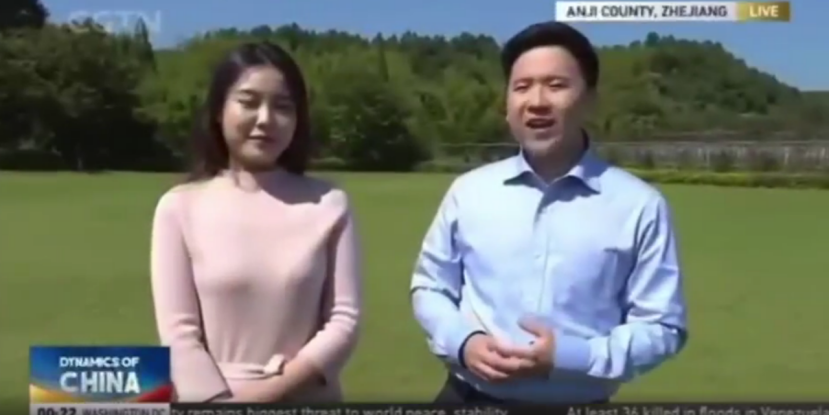近日,浙江大学区域协调发展研中心副主任、公共管理学院长聘教授方恺接受中国国际电视台(CGTN)新闻频道英文直播采访,解读浙江安吉“竹林碳汇”新模式对于我国“双碳”目标实现的重要性和该模式在中国其他区域推广的可行性。
方恺教授表示,竹子是极具生态价值、经济价值和文化价值的自然资源。安吉是著名的中国竹乡,县域内竹林资源丰富。然而,近年来随着毛竹价格逐年下降,毛竹林出现抛荒现象。绿色低碳转型背景下,安吉聚焦竹产业二次振兴,首创了竹林碳汇收储交易中心,通过数字化改革实现林地流转—统一经营—碳汇收储—平台交易—收益反哺的全链条闭环管理,打通了碳汇交易区域市场。安吉竹林碳汇改革是实现“双碳”目标的重要途径。
“两山银行”为主体的交易机制将农户林权流转到村专业合作社,实行统一经营管理,经核证后形成碳汇产品交易给认购企业,进而实现“企业碳配额增加、农民收入增加、合作社获得金融支持”的三赢局面。竹林碳汇交易试点具有创新和扩散价值,特别是江西、湖南、安徽、福建等竹林资源丰富的地区,可以逐步将安吉模式加以复制推广,真正践行“绿水青山就是金山银山”理念。

Q:Why is Anji doing this? Why is this important?
A:Well, I think Anji is perhaps one of the most famous bamboo hometowns in China. While bamboo has great ecological, economic and cultural value added, over the past years we see that the price of bamboo keeps going down. In some parts of Anji, the bamboo forests have been abandoned.
To revive bamboo industry, Anji has come up with an ambitious plan to transform its bamboo forests into tradable carbon sink, which is an effective way to achieve net-zero emissions. This plan is also a part of China’s efforts towards carbon peaking and carbon neutrality goals.
Q:Do you think there is any possibility that such an innovation can be introduced to other cities in China?
A:Yes, for sure. The Ecological Bank in Anji plays an important role in “Bamboo carbon-sink” innovation. The right of bamboo management can be transferred from farmers to cooperatives—who can help farmers better manage their bamboo forests. By selling the carbon credits, there is a triple win. The factories have more carbon credits for production, the farmers increase their income, and the cooperatives get more financial supports.
The “Bamboo carbon-sink” mode can be introduced to other regions, particularly to those that have rich bamboo resources, like Jiangxi, Hunan, Anhui, Fujian. By doing so, the saying “Lush mountains are invaluable assets” is achieved.
(浙江大学区域协调发展研究中心)